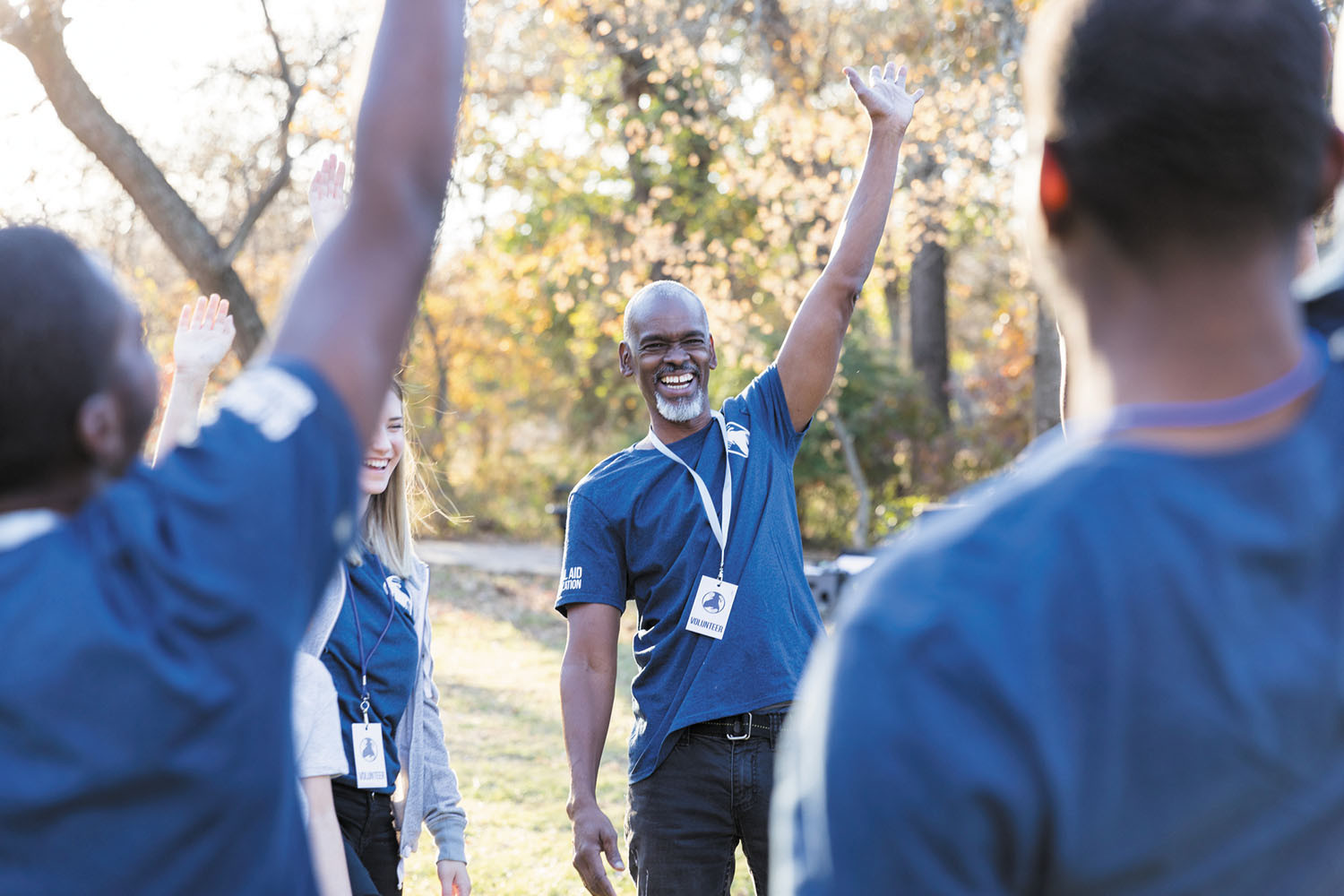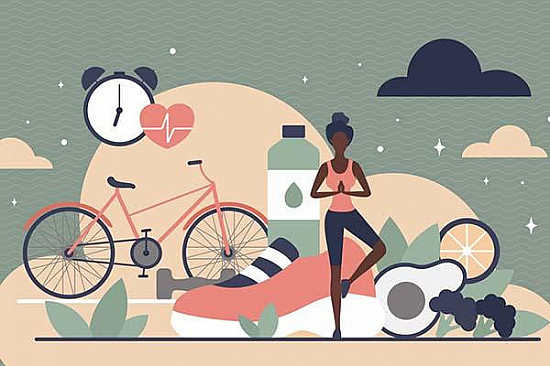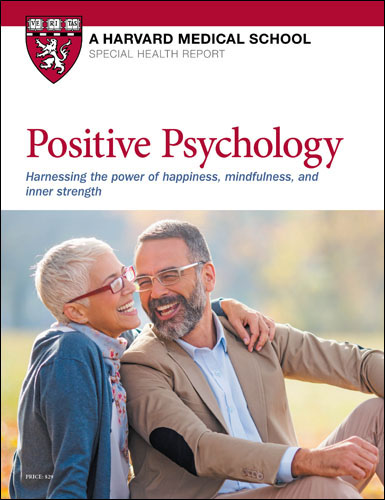Health and happiness go hand in hand
Happy people are generally healthier. So how can you be more joyful?

People who describe themselves as happy tend to have fewer health problems, a lower risk of depression, and longer lives.
Yet what if you’re not a naturally cheerful person? Is it possible to make yourself happy, especially during trying times?
It turns out that most people can increase their happiness. Research suggests that, on average, 50% of people’s general level of happiness is determined by genetics. However, 40% is under people’s control, and the remaining 10% depends on the circumstances.
"This implies that even if you don’t consider yourself happy, there is a good chance you have some power to change it," says Dr. Robert Waldinger, director of the longest-running study on happiness, the Harvard Study on Adult Development.
Put on a happy faceResearchers reporting in the June 2019 Psychological Bulletin combed data from 138 studies testing more than 11,000 people worldwide on how facial expressions affect emotions. They found that smiling makes people feel happier, just as scowling makes them feel angrier, and frowning makes them feel sadder. The impact was small, but smiling can have broad appeal. |
Working on happiness
Of course, it’s a challenge for even the most happy-go-lucky person to constantly remain upbeat. Happiness, like any aspect of wellness, is a constant work in progress. But no matter your current state of happiness, there are ways to boost your outlook and give your mental and physical health a lift. Here are some strategies to try.
Stay connected. The Harvard study led by Dr. Waldinger found a strong link between happiness and close relationships with family and friends. "Personal connection creates emotional stimulation, which is an automatic mood booster, while isolation is a mood buster," says Dr. Waldinger.
Raise your hand. Volunteering provides a sense of purpose and improves your mood. A 2016 BMJ Open study found that the effect was especially strong in adults older than age 70.
Perform regular acts of kindness. Pick a day and focus on performing acts of kindness toward others that you would not otherwise do. "It can take considerable planning in advance," says Tyler J. VanderWeele, director of the Human Flourishing Program at Harvard’s T.H. Chan School of Public Health. "But the planning itself and the deliberate intention to do good for others can also have important effects on one’s own well-being."
Find your inner child. When you are older, you have a chance to revisit the activities that gave you joy as a child or young adult. What made you happy when you were younger? Pick up those hobbies, games, sports, or other interests from your youth.
Buy more time. A 2017 study in the Proceedings of the National Academy of Sciences suggested that people who spend money on time-saving purchases, such as paying to delegate household chores, rather than material goods have greater life satisfaction. The effect was similar no matter a person’s income.
Invest in experiences. Another way money may buy happiness is through life experiences. It doesn’t have to be a big-ticket adventure either. For instance, opt for dinner in an ethnic restaurant, a matinee at the theater, or an art exhibit. The investment can have a lasting impact, too. According to some studies, people who spend money on experiences have longer-term satisfaction, as they create happier memories. In comparison, buying material objects often provides only temporary happiness.
Hang out with happy people. Happiness can be contagious. One study found that happiness can spread through social networks. Your upbeat feeling can trigger a chain reaction, whereby your contacts become happier being around you, and they, in turn, help their contacts feel more joyful, and so on. The researchers also found that sadness does not spread as robustly as happiness.
See more green. A study published online May 30, 2021, by EPJ Data Science looked at urban green spaces and their effect on citizens in 90 cities worldwide. It found that people’s happiness correlated with their area’s amount of urban green space, such as parks, gardens, and riversides, regardless of the country’s economic state. Creating your own green space can have a similar effect. Other research has shown that gardening at home improves emotional well-being in much the same way that activities like cycling and walking do.
Break up your routines. People feel happier when they have more variety in their daily routines, according to a study published online May 18, 2020, by Nature Neuroscience. Even small changes can have a big impact. The results found that altering one’s regular pattern—such as by trying a new exercise program every couple of weeks, listening to podcasts on some days and music other days, or just taking a different route to the grocery store or pharmacy—can add spice to your life.
Count your blessings. Set aside time to write down items for which you are grateful. It could be something you usually take for granted (a roof over your head and a supportive family) or something simple like receiving a heartfelt compliment, a book you enjoy, today’s good weather, or a great-tasting meal you had yesterday.
Make fewer decisions. Research has found that people given more options have more opportunities for regret and worry. A simple strategy can help you ease your choice burden and protect your happiness. If a decision doesn’t bring significant consequences, try limiting the amount of time you give yourself to pick, or choose between fewer options. Don’t allow yourself to second-guess the decision once it’s made. Save the serious deliberations for more significant issues. However, even when making those choices, try to avoid looking back.
Image: © SDI Productions/Getty ImagesAbout the Author

Matthew Solan, Executive Editor, Harvard Men's Health Watch
Disclaimer:
As a service to our readers, Harvard Health Publishing provides access to our library of archived content. Please note the date of last review or update on all articles.
No content on this site, regardless of date, should ever be used as a substitute for direct medical advice from your doctor or other qualified clinician.
















